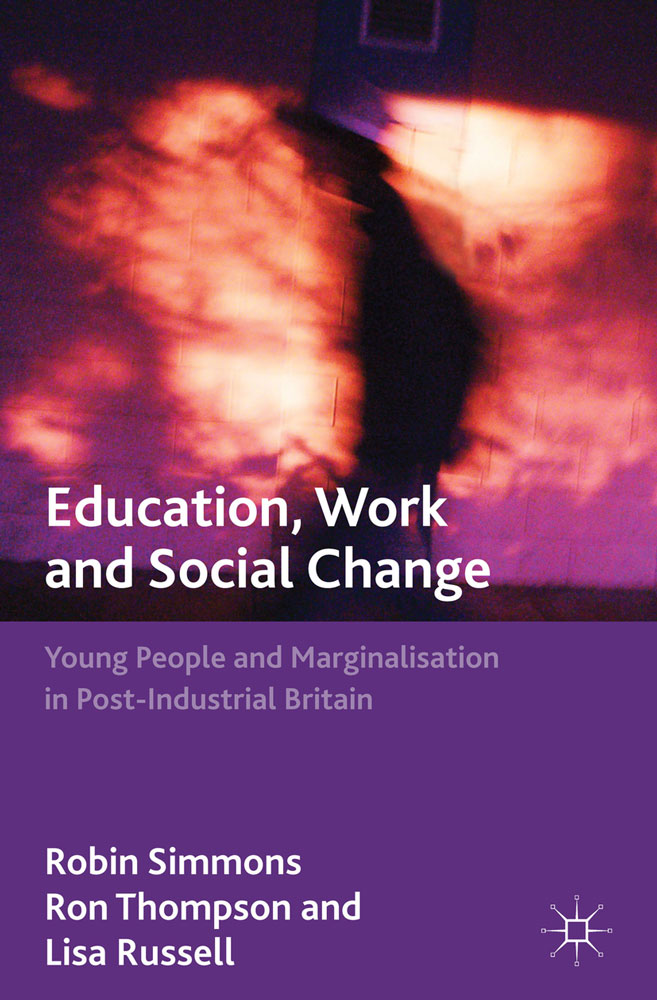
Professor Robin Simmons
HudCRES
Over recent years, I have been involved in a series of research projects which have focused on young people classified as NEET (not in education, employment or training). See Looking back and going forward: a decade of NEET research, Dec 2020.
Currently, I am a co-investigator on the Erasmus+ project Improving Transitions, Enabling Results (ITER) with partners from the UK, Hungary, Italy, Portugal and Romania. The research examines barriers to participation faced by NEET-experienced young people across Europe, and aims to help them move from employability programmes designed specifically for NEET young people into mainstream education and training. One of the project’s key outputs is providing resources which will enable practitioners to support young people in making this transition.
Employability programmes aim to provide NEET-experienced young people with the skills and abilities they need to move onto further education or employment. This might include improving a young person’s literacy and numeracy skills, building their confidence, boosting their motivation or helping them improve their communication skills. Unfortunately, however, many young people fail to make successful transitions from these programmes into mainstream education and training.
A few years ago, research conducted at the University of Huddersfield showed us that, in England at least, the most common outcome for a young person leaving an employability programme was a place on another employability programme, and that the second most common destination was a return to being NEET (Education, Work and Social Change: Young People and Marginalization in Post-Industrial Britain, Simmons, Thompson and Russell, 2014).
Data from Northern Ireland suggests that, between 2013-2017, only four percent of those leaving 'Training Skills for Your Life', an employability programme designed for the most marginalized young people, progressed onto further education or employment, and were still participating after 13 weeks (Statistical Bulletin: Training for Success 2013-2017, NISRA, 2021, p. 11).
This is problematic in many ways. Young people who spend significant periods of time being NEET are particularly vulnerable to long-term adult unemployment. They are also more likely to be involved with the criminal justice system than their peers; to suffer from poor health; addiction; relationship breakdowns; and multiple forms of social exclusion. NEET-experienced young people are also less likely to vote, to volunteer, or engage with civil society more broadly. There are also significant economic consequences associated with NEET. On one hand, there are lost tax revenues associated with unemployment, but the long-term effects of NEET are also associated with additional public expenditure on health, social services, welfare benefits and other forms of support.
Central to the ITER project has been a programme of research drawing on interviews with three sets of participants in each nation:
- NEET-experienced young people
- Mentors whose work entails providing advice, guidance and other forms of support to NEET-experienced young people
- Stakeholders responsible for making and implementing policy at the local and regional level
Findings from the ITER project suggest there are some significant differences in the challenges and opportunities facing NEET young people in different countries. NEET rates are, for example, substantially higher in Portugal and Romania than in the UK, and different countries have different arrangements in terms of the ways in which education and training is organised funded and delivered. The youth labour market also differs considerably from place to place, due partly to the history, culture and traditions which characterise different nations, and extant demand for different forms of labour.
Our data, however, also suggests that there many similarities in terms of the individual and structural barriers to participation facing NEET-experienced youth across Europe. The former includes young people’s skills, knowledge and qualifications; their motivation and commitment; social emotional and behavioural difficulties; and physical and mental health. The latter encompasses the influence of family, peers and significant others; the availability of appropriate education, training and other provision; grants, travel and training allowances; and the quality of information, advice and guidance services.
For many young people, what appear to be intrinsic personal characteristics – attitudes, opinions, and levels of motivation and commitment, for example – often derive, at least in part, from repeated negative experiences of education, work and other aspects of social life.
Mentoring matters - a lot
There are, nevertheless, tangible ways in which NEET-experienced young people can be helped into mainstream education and training. Our data shows that the availability (or absence) of grants, bursaries and travel allowances is often significant in either encouraging or inhibiting participation. It is important to remember that many NEET-experienced young people come from deprived backgrounds and often lack significant family support.
But perhaps the strongest message from our research is that learning mentors can make a real difference to NEET-experienced young people moving into mainstream education and training.
Young people’s lives can be complicated, but findings from the ITER research suggests that the mentor can have a pivotal role in enabling NEET-experienced young people to make successful transitions into mainstream provision. The way that mentors interact with young people can have a significant impact, and our data suggests that building and maintaining positive relationships is key to supporting NEET-experienced young people into more formal learning.
Part of the mentor’s role is about recognising young people’s strengths and abilities, as well as their deficits or shortcomings. This can help them get into the right provision in the first place – in other words, training at the right level which reflects their capabilities, interests and ambitions – but also means that young people are less likely to dropout once on programme. Overwhelmingly, our participants also emphasised the importance of continuing mentor support even after a NEET-experienced young person has entered mainstream provision. This might include liaising with training providers, family, employers and support services; providing reassurance, encouragement and emotional support; or helping young people to solve financial, logistical and other practical barriers to participation. In other words, continuing to act as an advocate and supporter even after the official job is done.

Undoubtedly, helping NEET-experienced young people make successful transitions into mainstream education and training is a complex and demanding task. But, whilst there is no ‘silver bullet’ which will guarantee success, findings from the ITER research suggest that the role of the learning mentor is perhaps the single most important factor in producing positive outcomes for marginalized youth.
Policymakers and practitioners therefore need to be aware of the vital role that mentors play in enabling NEET-experienced young people to move into mainstream provision, and stay there.


